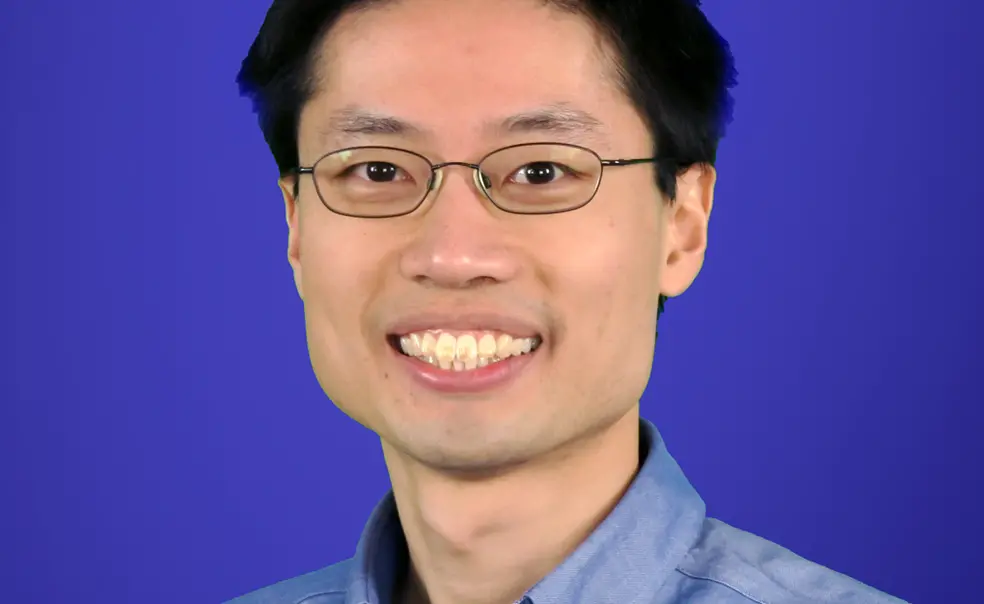Professor and Coach Po-Shen Loh *10 Challenges Rising Mathematicians
Mathematician Po-Shen Loh *10, a professor at Carnegie Mellon University who completed his doctoral work at Princeton, often is asked to give academic lectures about his complex research interests. But he’s just as engaged when addressing high school students and library-goers. At one public lecture, Loh posed this question: Why are the numbers on a six-sided die arranged in particular way? The one is always opposite the six, the two opposite the five, and the three opposite the four.
To explain his solution, Loh created a fake die, where one is opposite two. With it, he demonstrated how he could roll the dice in a way that would help him win many common games.
“If one and two are the axis of rotation, the only four faces coming up are three through six,” Loh explained. “This is an example of how a mathematician looks at the world, using probability and three-dimensional geometry to explain why dice work the way they do.”
“I have seen with my own eyes that people can reach extraordinary heights in mathematics, as long as they keep finding the right challenges.”
— Po-Shen Loh *10
In addition to being a professor at Carnegie Mellon, Loh dedicates part of his time to coaching the U.S. International Mathematical Olympiad team. Loh was a member of the team as a high school student in 1999, helping the U.S. win a silver medal, and as a sophomore at Caltech, he got involved with the coaching side. Since assuming the role of head coach a few years later, he has led the team to victory in 2015, 2016, and 2018 — no small feat, given that the U.S. hadn’t won since 1994.
“I love teaching, I love coaching, I love helping the next generation as much as possible,” Loh said.
Loh meets with the U.S. International Mathematical Olympiad team for three weeks in June, but he credits the Mathematical Association of America, which is in charge of the team, and the 20 assistant coaches, including Princeton graduate student Victor Wang, for providing the bulk of support to the team throughout the year.
Outside the competitive sphere, Loh is developing creative ways to get more people interested in math. His goal is to create a “larger base” of people in the U.S. who will find solving complex math problems to be a fun endeavor. He travels to museums, libraries, and schools across the country to foster an interest of math among as many people as possible.
To that end, Loh has developed a website, Expii, which contains videos about topics and interesting problems in math and science. The name of the website has several connotations, he explained: The “exp” prefix brings to mind a plethora of words, including “experience,” and the letters in Expii bear some resemblance to the Euler equation, the “most beautiful equation in math.”
“It’s supposed to be welcoming to everyone, but it also holds a very deep meaning,” Loh said. “That’s the mission of the site. We’re trying to help everyone learn math, but we have some very high ambitions for what we’re trying to do.”
Currently, the site has around 10,000 users, and Loh and his team have assembled 25,000 math questions and problems. He aims to make Expii be a “landing site” for students interested in challenging themselves in math and going above and beyond the material. He credits his International Mathematical Olympiad students for inspiring the site.
“I have seen with my own eyes that people can reach extraordinary heights in mathematics, as long as they keep finding the right challenges,” Loh said.
WATCH The “Why” of Math, Po-Shen Loh’s presentation at the 2018 TEDxCMU conference












No responses yet